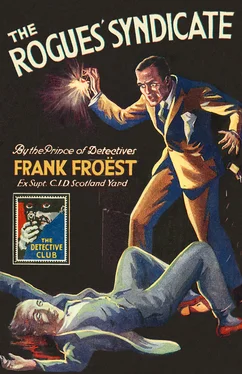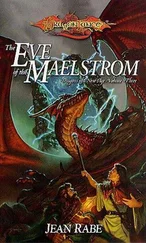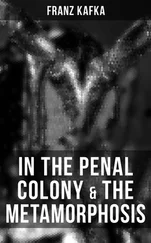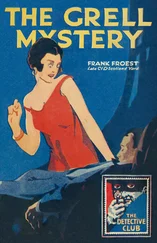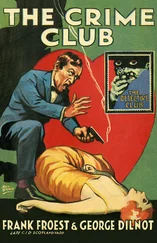‘That Mr Menzies?’
‘Yes,’ he answered impatiently. ‘Speak up! Who is it? What do you want?’
A prolonged buzz reached him. He was conscious of someone speaking, but only intermittently could he hear what was said.
‘Pretty done up—buz-z—come at once—buz-z—at thirtyfour—buz-z—Gardens, Kensington—buz-z.’
‘Number, please?’ said a new and distinct voice.
‘Blast!’ said Menzies simply, and put down the telephone.
This addiction to forcible language on occasions of annoyance was a constant regret to him in his more reflective moments.
Jimmy Hallett’s first impression on awakening had been that someone was swinging a sledge-hammer irregularly on to his temple. He lay still for a little, wondering why it should be. By-and-by he sat up, and tried to piece together the events of the evening. His head ached intolerably, and he found consecutive thought painful.
It was totally dark, and he could make out nothing of where he was. Then the whole thing flashed across his mind, and he staggered rather uncertainly to his feet, and, steadying himself against the wall, struck a match.
The feeble flicker showed him a blue-papered apartment, furnished as a dining-room. He had been lying just within the room, and now he tried the door. It refused to answer to his tug, and he realised how weak he was as he all but toppled backwards. The match went out, and he struck another.
Then it was that he noticed an electric-switch, and pulled it over. A blaze of light flooded the room, and he tottered to one of the Jacobean armchairs at the head of the table. The sledge-hammer was still swinging at his temples, and things swayed dizzily to and fro before his eyes. He made a resolute effort to pull himself together. His eyes roved over the room, and he noticed a pedestal telephone on a small table in the corner furthest from him.
‘What was the name of the chap Pinkerton gave me an introduction to?’ he muttered.
And drawing a bundle of papers from his breast-pocket, he sorted them till the envelope he needed lay at the top.
CHIEF DETECTIVE-INSPECTOR WEIR MENZIES,
New Scotland Yard, S.W.
Cautiously the man began to move across the hearthrug towards the telephone. Four shambling steps he took, and then something that had been hidden by the table tripped him, and he sprawled on all fours. He gave a little gasp of horror, and steadying himself on his knees, held his hands a foot in front of his face, gazing at them stupidly. They were wet—wet with blood, and the thing that had tripped him was the body of a man.
It is one thing to be brought in association at second-hand—so to speak—with a crime, as are doctors, journalists, and detectives, but quite another to be so closely identified with it as to be an actor in the drama. Hallett had seen violence and even death in his time, but never had cold horror so thrilled him as it did now. In ordinary conditions, with nerves previously unshaken, he would have been little more moved than a spectator at a play—perhaps even less so, for real life tragedies are rarely well stage-managed.
Circumstances, however, had conspired to bring home to him the last touch of terror. The sudden assault, the locked room, and now the dead man, had strung his nerves to a fine edge. He could have shrieked aloud.
He wiped his hand on his handkerchief, but the stain still remained. Carefully he stepped over the body, and made his way to the telephone. His imagination was beginning to work, and he recalled cases where perfectly innocent men had been the victims of circumstantial evidence that had convicted them of hideous crimes. The story of the cheques thrust upon him in the fog seemed to him ridiculously unconvincing. Had his mind been less overwrought, had he been able to take a calmer survey of the matter, he would probably never have given his own position a thought. He fingered the telephone-book clumsily, and his mind reverted to the coincidence that he should hold a letter of introduction to one of the senior detectives of Scotland Yard.
‘Queer that it should come in so handy,’ he grinned feebly; and then weakness overcame him.
He gave a number to the exchange, and hours seemed to elapse before he got on to Menzies. In a quick rush of words he made himself known to the detective, and recited the happenings of the evening. He was not to know that barely a dozen disconnected words had reached the detective. His strength was waning, and he wanted Menzies to know everything before he gave way. As he finished, the receiver dropped listlessly from his hand, and for the first time in his life Jimmy Hallett fainted.
At the other end of the wire Weir Menzies was left with one of those harassing little problems that he hated. It was an irregular hour—an hour when he had reckoned on being safely on his way home. For all the insistence of the voice at the telephone, it might be quite a trivial affair. Menzies did not like losing sleep for trivialities. People in trouble are apt to take distorted views of the importance of their difficulties. That is why private inquiry agencies flourish.
Menzies had once been asked to investigate a highly important West End robbery at the house of a duke. The duchess herself had demanded the services of ‘the ablest and most experienced detective possible’, and had refused to give details to anyone else. Menzies went—to discover that a pet Pomeranian had strayed.
‘Madam,’ he had remarked after a frigid five minutes, ‘at one period I should have been delighted to try to find your dog. I was then paid for such matters. I am now paid for other things. There are many men as competent as I for the investigation to which you attach such importance. I regret that it would be a breach of duty for me to undertake it. I am merely a detective, but the salary I am paid for the use of my time would be out of proportion to the result, even if successful. I must refer your Grace to the local police-station. Good-evening.’
Since then he had been very cautious of ambiguous messages. He thought of his well-aired bed, and sighed. He was almost tempted to turn over the affair to the local division of police to deal with the case, or leave it to the night staff of the Criminal Investigation Department. The fact that he had been appealed to by name ultimately swayed him.
In two minutes he had set in motion the machinery which would reveal the point from which the voice originated. It needed no complex reasoning, no swift flash of inspiration. He broke up a game of dominoes, and emerged with two men—one to extract from the Kensington directory a list of thoroughfares ending in ‘gardens’, and the names of persons who resided at the respective thirty-fours; and the other with a telephone directory to eliminate all those not on the telephone.
‘And get a move on,’ he added. ‘I don’t want to hang about all night. Ask Riddle to come up and ’phone ’em through to the local people as you check ’em off. Tell ’em they’ll oblige me by sending out as many spare men as they’ve got to ask at each address if anyone rang me up.’
He adjusted his coat with precision, lit a cigar, and sauntered over to the Underground station opposite. Barring accidents, the address would be ready for him by the time he reached Kensington.
His anticipation was not disappointed. One of the advantages which the Criminal Investigation Department has over the individual amateur detective, beloved by Magersfontein Road, is the co-operation at need of a practically unlimited number of trained men. True, the detective staff at Kensington had long since gone home, since there was no extraordinary business to detain them, but, in this case, a dozen ordinary constables served as well. Nine of them had returned when Menzies walked in. There was only one who interested him. He had reported that he could get no reply from Linstone Terrace Gardens.
Читать дальше
